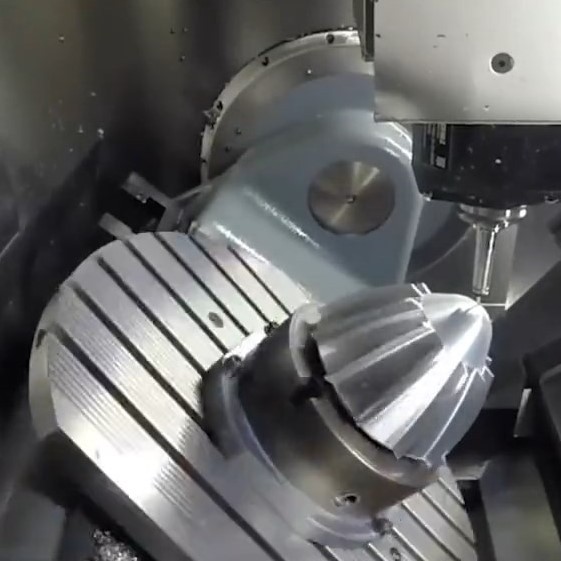Tip #2: Start With A Solutionized Piece Of Metal
Inconel® is considered a superalloy because of being nicely suited for excessive pressure and heat environments in addition SA240 316 Stainless steel plate to being corrosion resistant. However, stainless steel alloys are often more appropriate for sterile manufacturing or medical purposes.
Machining Inconel 625, Nickel 200 And Other Nickel Alloys

Inconel® is famously immune to extreme temperatures, and retains enough tensile strength at excessive temperatures to continue holding reasonable hundreds (Inconel 625® retains thirteen.three ksi tensile power at 2,000°F). This makes Inconel® the ideal basket materials for heat deal with purposes—evaluating favorably to chrome steel alloys corresponding to Grade 304, 316, and 330 SS.
Why Choice us All that You Need To Know About Us
- Inconel alloys are oxidation- and corrosion-resistant materials nicely suited to service in extreme environments subjected to high pressure and kinetic energy.
- Inconel® is famously immune to excessive temperatures, and retains enough tensile energy at excessive temperatures to continue holding reasonable hundreds (Inconel 625® retains 13.three ksi tensile power at 2,000°F).
- This makes Inconel® the ideal basket material for warmth deal with applications—comparing favorably to stainless-steel alloys such as Grade 304, 316, and 330 SS.
What is the hardness of Inconel 625?
Cold-drawing metal hardens the work surface. This makes Inconel even harder to work, causing more stress to tooling. Stress-relieving metal prior to working can help reduce surface hardness. Starting with a solutionized piece of Inconel is optimal because it helps to limit the amount of work hardening.
Inconel 625 has tremendous resistance to a wide range of unusually extreme corrosive environments together with excessive-temperature results corresponding to oxidation and carburization. Inconel is used in aerospace applications in addition to marine applications. Common applications for this alloy are springs, seals, bellows for submerged controls, electrical cable connectors, fasteners, flexure devices, and oceanographic instrument components. Inconels are a class of nickel-chrome-primarily based super alloys characterized by high corrosion resistance, oxidation resistance, power at excessive temperatures, and creep resistance.
Inconel alloys are oxidation- and corrosion-resistant supplies well suited for service in excessive environments subjected to excessive pressure and kinetic power. When heated, Inconel varieties a thick and steady passivating oxide layer defending the floor from further attack. Inconel’s high temperature power is developed by stable resolution strengthening or precipitation strengthening, relying on the alloy.
What is Inconel 625 material?
INCONEL® nickel-chromium alloy 625 (UNS N06625/W.Nr. 2.4856) is used for its high strength, excellent fabricability (including joining), and out- standing corrosion resistance. Service temperatures range from cryogenic to 1800°F (982°C). Composition is shown in Table 1.
In age-hardening or precipitation-strengthening varieties, small amounts of niobium mix with nickel to kind the intermetallic compound Ni3Nb or gamma double prime (γ″). Gamma prime varieties small cubic crystals that inhibit slip and creep successfully at elevated temperatures. The formation of gamma-prime crystals will increase over time, especially after three hours of a heat exposure of 850 °C, and continues to grow after 72 hours of exposure. Inconel Alloy 625 is a non-magnetic, corrosion and oxidation resistant, nickel-chromium alloy. The high strength of Inconel 625 is the result of the stiffening mixture of molybdenum and niobium on the nickel chromium base of the alloy.
A superalloy like Inconel® tends to be higher for warmth treating applications and other high-temperature processes. When determining energy, tensile power, corrosion resistance, and even melt resistance may be measured. Inconel 625® has a high tensile energy range of ksi in comparison with the seventy three.2 ksi of chrome steel and can preserve that strength at larger working temperatures. Inconel alloys are oxidation-corrosion-resistant materials nicely fitted to service in excessive environments subjected to pressure and warmth. When heated, Inconel varieties a thick, stable, passivating oxide layer protecting the floor from further assault.
Inconel is ready to face up to elevated temperatures and intensely corrosive environments because of two elements. One cause is because of the formation of the intermetallic compound Ni3Nb in the gamma double prime (ɣ’’) part. This ‘glue’ prevents the grains from increasing in measurement when heated to high temperatures (for essentially the most part, smaller grains means a excessive energy and larger grains lends itself to a better ductility). Second, Inconel has a high corrosion resistance due to the passivation layer that types when heated. Both of these factors make Inconel ideal alloys for purposes from scorching section gasoline generators to deep sea properly drilling.
